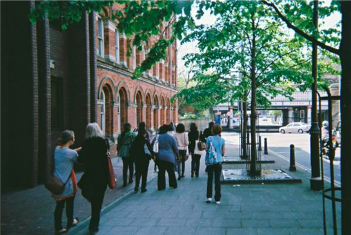
The subjective realities of migrants are at the centre of Maggie O’Neill’s approach which is articulated through the practice of walking. As part of her Leverhulme Research Fellowship with a specific focus on borders, risk and belonging, the project aims to explore migrants’ journeys, mapping out their pathways to becoming long-term residents of the area. In this project, walking is a platform for sensing the surrounding environment and being in touch with personal emotions and memories. The performative act of walking in space and time is relational and plays a role in the definition of belonging to a place, which is particularly important in the definition of migrants’ identities. Walking is a useful methodology when studying borders, risk, and belonging, as it can involve physically crossing borders, going into areas perceived as ‘risky,’ or, literally walking on a border. The project makes use of participatory action research (PAR) and arts practice (ethno-mimesis) when investigating the sense of belonging negotiated by migrants. Arts practice can include performance and public displays such as maps, whilst ethno-mimesis focuses on imitating the representations of the reality of migrants. The intention of the research is to produce a web resource including maps from the walks, images and sound files.
Researcher: Maggie O’Neill (University of York)

